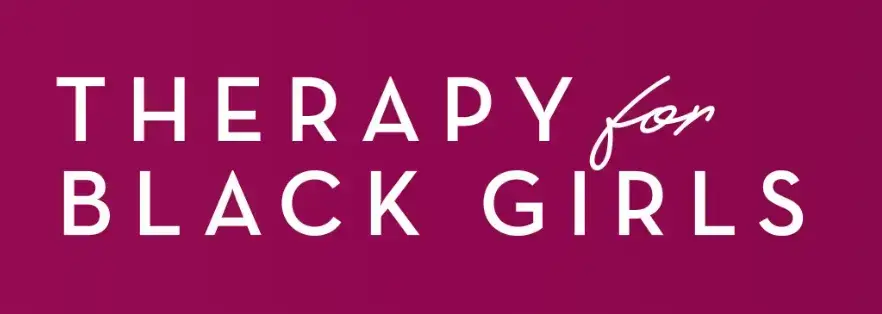
The Hidden Link between
Chronic Fatigue Syndrome
and Childhood Trauma
Chronic Fatigue Syndrome (CFS) is a condition that puzzles doctors, therapists and clients because of it’s complex nature and difficulty in pinpointing its exact cause. However, through a whole-person lense, research has improved our understanding of the link between adverse childhood events (ACEs) and the development of CFS and depression. This research gives us new perspectives on treatment options and betters our understanding of chronic fatigue syndrome.
Childhood Trauma & Chronic Fatigue
Studies have begun to illustrate a link between early traumatic experiences and the likelihood of developing chronic fatigue syndrome. Individuals who have faced such adversities in childhood are found to be at a significantly higher risk of experiencing the persistent and unexplained fatigue characteristic of chronic fatigue syndrome. This connection points to the deep-seated effects of trauma on the body’s stress management systems, particularly the hypothalamic-pituitary-adrenal (HPA) axis, which governs our stress response.
See the full article that this information was derived from here:
Assessing Childhood Trauma & 'ACES'
Adverse childhood experiences (ACE’s) encompass a range of traumatic exposures, from physical, emotional, and sexual abuse to neglect and household dysfunction. These experiences can affect an individual’s health well into adulthood. The impact of these traumas is profound, influencing not just mental health but also physical well-being, including the risk of developing Chronic Fatigue Syndrome.
Differentiating Between
Chronic Fatigue, Depression & PTSD
By recognizing the critical role of childhood trauma in the development of Chronic Fatigue Syndrome, therapists can ensure that patients receive accurate diagnoses and effective, comprehensive treatment plans.
- Comprehensive Evaluation:
- A thorough assessment should include a detailed exploration of an individual’s childhood experiences, looking for signs of trauma or prolonged stress.
- Trauma-Informed Approach:
- Therapists should employ a trauma-informed care approach, ensuring a safe environment for clients to discuss potentially traumatic past events.
- Screening for PTSD and Other Trauma-Related Disorders:
- Incorporating screenings for PTSD and related disorders can help identify the root causes of chronic fatigue, guiding more effective treatment strategies.
- Psychoeducation:
- Educating clients about the impact of trauma on physical health can empower them to understand their symptoms in a new light, fostering a more holistic approach to treatment.
- Collaborative Care:
- Working closely with medical professionals can ensure a comprehensive approach to treatment, addressing both the psychological and physiological aspects of CFS.
Exploring chronic fatigue
from a whole person perspective
The Role of Stress & the Body's Response
The body’s response to stress involves the hypothalamic-pituitary-adrenal (HPA) axis, a critical part of the neuroendocrine system that regulates stress hormones. In individuals with chronic fatigue syndrome, this system can become dysregulated, possibly due to the long-term impact of childhood trauma. This dysregulation can lead to an inappropriate stress response, making it harder for the body to recover from stress and contributing to the symptoms of chronic fatigue.
Chronic Fatigue and Depression
Traditionally, CFS and depression have often been diagnosed based on symptom presentation without delving into the underlying causes. This approach overlooks the potential role of PTSD, childhood trauma, and other stress-related disorders in contributing to the condition. It’s crucial for both therapists and clients to adopt a more investigative stance, exploring the possibility that childhood trauma could be influencing current health issues.
Final Thoughts
For individuals experiencing fatigue, feelings of depression, or a lack of motivation, exploring the possibility of childhood trauma as an underlying factor is a critical step. Misattributing these symptoms to a “lack of motivation” or labeling symptoms as “depression” without considering the role of early adverse experiences can hinder the healing process. By prioritizing the discussion of childhood experiences in therapy, clients and therapists can work together to uncover the true roots of these symptoms, paving the way for more effective and targeted treatments.
FAQ ABout Online Therapy in New Jersey
Where are you located? I need a therapist near me
We are fully online, which means that your therapy sessions will be help via video call on our HIPAA compliant Platform. Anyone in New Jersey can access our therapy services
How do I get started as a new client?
New Clients can reach out to us directly via call, text or email here:
Does my insurance cover my visits?
We provide”Courtesy Billing” for clients who are using the Out-of-network insurance benefits.
Our Insurance Page shares a small blurb about Why We Left Insurance Panels
What are out-of-network benefits?
When using OON benefits, patients typically pay the full cost of the treatment upfront and then file a claim with their insurance company for reimbursement. The amount of reimbursement can vary depending on the plan, but it can sometimes be as high as 90%. Call your insurance to see if you have OON benefits or click here to call us and we can check for you!
Is Online Therapy As Effective As In-Person Therapy?
Online therapy is essentially face-to-face counseling, just conducted remotely. Studies show that tele-therapy is as effective as traditional counseling. Professional organizations and state governments recognize its benefits and have set regulations for it. However, like any therapy, its success in achieving your goals isn’t guaranteed. It’s important to discuss with your therapist whether tele-therapy is working for you.
How Should I Prepare for My First Session?
Showing up is all that you need to do! But if you really want to get the most out of session, it could help to take some time to think about what you want from therapy. It helps to write down your goals, questions you have or things that you feel are important to share.
Do you offer traditional talk therapy?
of course! though we have some unconventional therapy approaches, we are rooted in evidenced based practices. Talk therapy is a major player in the therapy room! See What we Treat and Integrative Services for more information
Is Virtual Counseling Suitable for Everyone?
Online therapy might not be as effective for individuals with chronic suicidal thoughts, severe trauma, significant mental health history, or those recently in intensive care. Such cases often benefit more from traditional, in-person counseling. We’ll help you decide if our online services are right for you during your intake and evaluation.
Can I Change Therapists If I'm Not Happy?
Yes, you can switch therapists to another provider within the practice, or we can provide you a referral if preferred. We want to ensure that your time and effort are well spent, and that you are getting the relief you need, that’s why we work collaboratively with each other in the practice, as well as outside therapists who we know and trust.
How Do I Know If Therapy Is Helping?
You should feel like you’re making progress. Signs it’s working include:
- Feeling comfortable talking to your therapist
- Your therapist respects boundaries
- You’re moving towards your goals
- You feel listened to
You’re doing better in life - Your self-esteem is getting better
What is your cancellation policy?
We ask that clients provide at least 24 hours notice in the event that they need to cancel to avoid the 50% cancellation fee. we understand that life happens and do our best to be flexible & reschedule.
What Geographic Areas Are Served?
Currently, we serve clients in New Jersey and are expanding to other states as telehealth laws evolve. While telehealth offers the convenience of attending sessions from anywhere, state laws require clients to be in-state during their session.
Is Online Therapy Easy to Use for Non-Tech-Savvy People?
Yes, it’s pretty simple to access sessions. You’ll need basic internet skills, such as opening and visiting the patient link sent to you via email. It’s similar to video chatting like Facetime or Zoom. We can also walk you through it on the phone the first time to ensure a strong connection
What Questions Should I Ask My New Therapist?
Feel free to ask anything. Some good questions are:
- How often will we meet?
- What do you specialize in?
- What experience do you have with my issue?
- What outcomes can I expect?
- How will I know I’m progressing?
- How long do you usually work with clients?
- How will we set my treatment goals?
What is the difference between associate therapists & fully licensed therapists?
Our Qualifications:
Our founder, Rebecca Sidoti, is a highly qualified, state-licensed therapist and supervisor with extensive training in anxiety related disorders and innovative treatment such as Ketamine Therapy. Mind by Design Counseling adheres to standards set by the our governing counseling boards.
To see each providers credentials, training and licenses, visit our “Meet the Therapists” Page to learn more.
- LAC/LSW are therapists who may practice clinical work under the supervision of a fully licensed therapist.
- LPC/LCSW are therapists who have completed the necessary clinical hours post-graduation under supervision and can practice clinical work independently.











